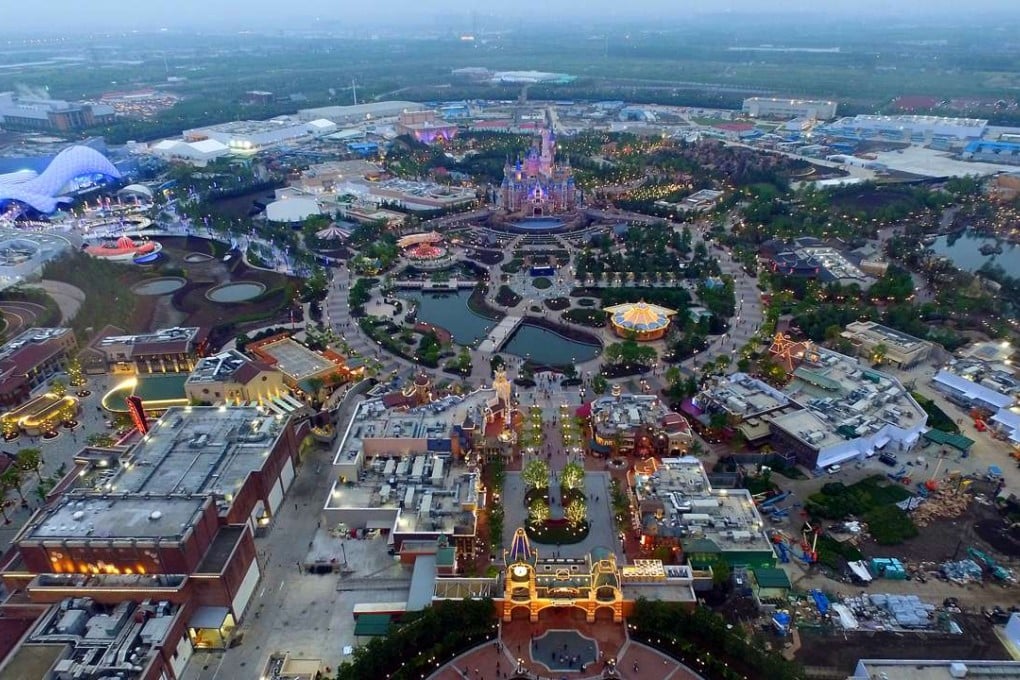Shanghai Disneyland spurs growth thanks to massive infrastructure projects in surrounding areas
Theme park is rapidly being surrounded by hotels and shopping malls, while prices at neighbouring residential developments are surging by up to 35 per cent

Shanghai Disneyland sits at the core of the emerging 20-square-kilometre Shanghai International Tourism and Resorts Zone [SITRZ], in the centre of Pudong District, 21km southeast of People’s Square. This project began during the 12th five-year plan (2011-2015), and was a major part of the city’s initiative to steer the economy away from manufacturing and towards services.
Shanghai first started building this new catalyst of tourism, leisure, and residential living by liquidating a large industrial area, moving out an entire ensemble of factories, and clearing the land for development. The Disney resort itself occupies only a fraction (3.9 square kilometres) of the land set aside for this tourism zone, and sits at a core that is rapidly being surrounded by hotels, shopping malls, and higher-end residential developments.
“Some retail developers are trying to benefit from synergy with the Disney project,” says Warner Brown, a researcher with JLL, a global real estate intelligence firm. “Value Retail is building an outlet project nearby. Italy’s RDM Group [is] as well. They are hoping that as long as travellers are in this part of suburban Shanghai anyway, they can be enticed to include some outlet shopping on their itinerary to make the trip more worthwhile.”
Some retail developers are trying to benefit from synergy with the Disney project
Real estate in the area surrounding Shanghai Disney is booming, with prices in nearby developments surging by up to 35 per cent, according to Mingtiandi, a real estate research firm.
However, as Brown points out: “[Saying] ‘Disney [is] having an impact on real estate prices nearby’ is not as appropriate as saying, ‘Disney already had an impact on real estate prices nearby’. Much of Disney’s influence on nearby residential prices occurred several years ago when the Shanghai Disney project was first mooted and the land was first sold.”
Brown also says that this growth in residential activity isn’t only because of the Disney tourism zone in and of itself, but also because of the transport infrastructure that was built to support it. Metro Line 11, he says, also offers direct access to a new office cluster in Qiantan
and contributed to a bump in residential prices.
“The area around the Disney Park and notably the final stop or two on Line 11 has a pleasant living environment which has potential to grow into a suburban residential area,” Brown says.